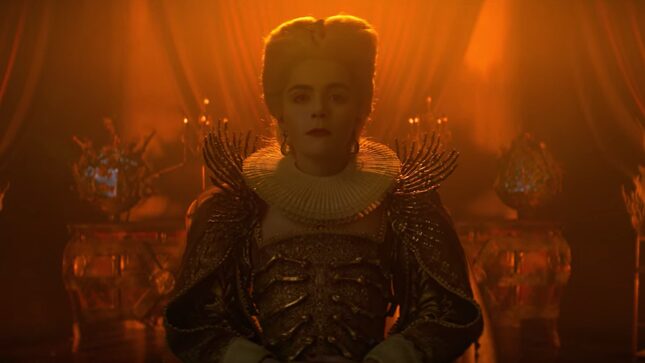

Spoilers ahead.
In Part 3 of Netflix’s Chilling Adventures of Sabrina, Sabrina Spellman (Kiernan Shipka) enters the netherworld (hell) with the ambition of protecting her loved ones and acquiring power over all Satanic creatures. But like any enterprising woman in a corrupt system—or in this case, two: Earth and the underworld—she learns success is a myth. If there’s supposed to be a moral to this season, it’s that even the Queen of Hell can’t have it all. But behind the Catholic iconography and many allusions to horror films, all of which dilute and confuse the plot, there’s a sense that this series was never meant to make it this far. There are so many spinning plates in the air as the narrative builds that it feels like the product of a precocious child’s imagination or a Ponzi scheme—more details and issues and characters and mysticism are added not to progress the development of the universe, but to continue piling on the elements as a distraction from any incongruencies.
-

-

-

-

-

-

-

-

-

-

-

-

-

-

-

-

-

-

-

-

-

-

-

-

-

-

-

-

-

-

-

-

-

-

-

-

-

-

-

-








































